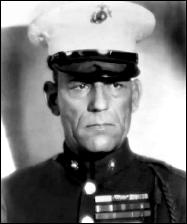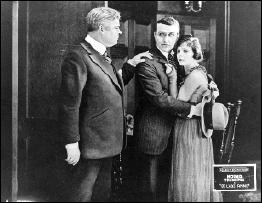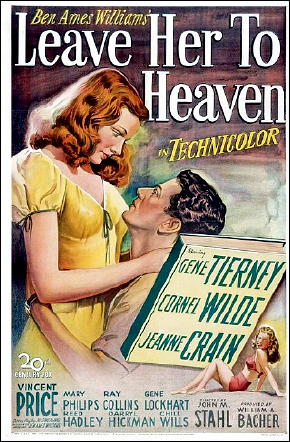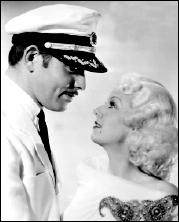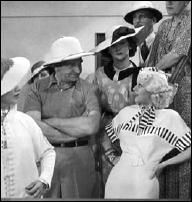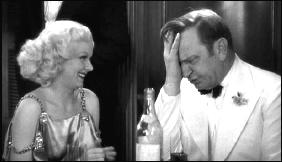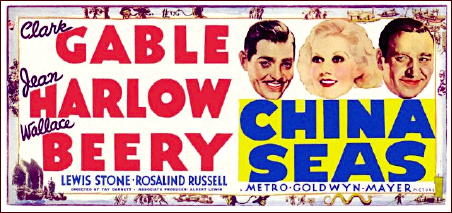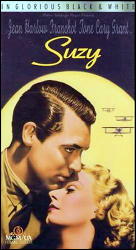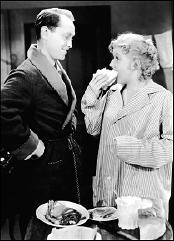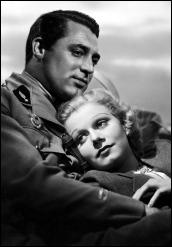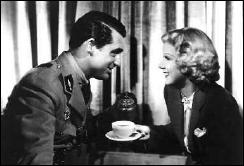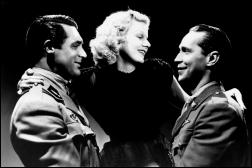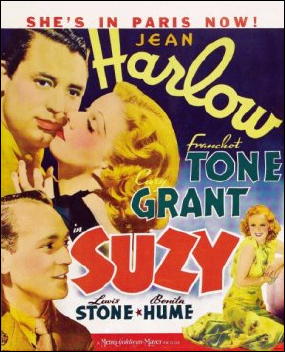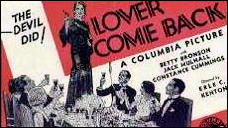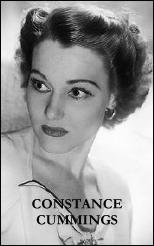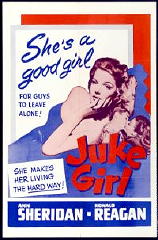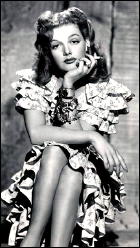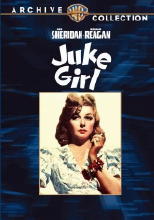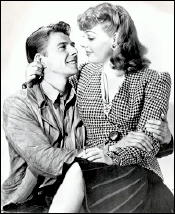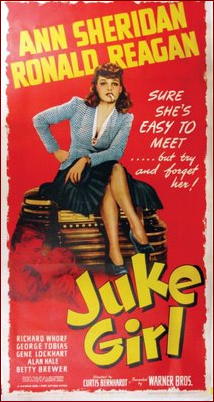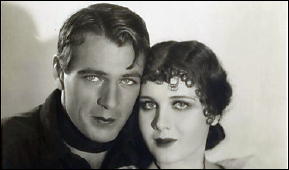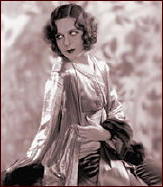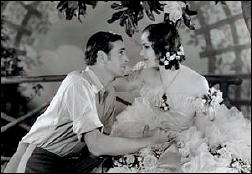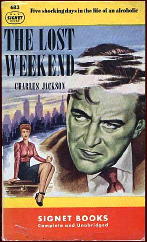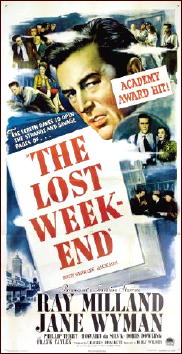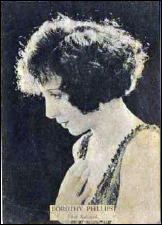Reviewed by DAVID L. VINEYARD:
LEAVE HER TO HEAVEN. 20th Century-Fox, 1945. Gene Tierney, Cornell Wilde, Jeanne Crain, Vincent Price, Darryl Hickman, Mary Phillips, Ray Collins, Chill Wills, Gene Lockhart. Screenplay by Jo Swerling, based on the novel by Ben Ames Williams. Cinematography: Leon Shamoy. Director: John M. Stahl.
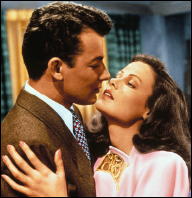
“There’s nothing wrong with Ellen. It’s just that she loves too much.”
I don’t think I have ever heard anyone argue that this stunning Technicolor film — photographed in the glossiest and brightest light imaginable, with sets in New Mexico, Georgia, and Maine that look as if they were straight from the pages of House Beautiful and Architectural Digest — is anything but the darkest of film noir classics.
That’s thanks to a stunning performance by Gene Tierney as a beautiful and soulless sociopath who doesn’t care to share her love — and will go to any length to keep her loved ones to herself — including murder.
Tierney got an Oscar nomination and Leon Shamoy’s cinematography won the statuette for this mix of gothic and soap opera elements with one of the screen’s most beautiful monsters at its heart. ( The title comes from Hamlet, the ghost of Hamlet’s father pleading with his son not to pursue vengeance against his Mother, but rather “leave her to heaven …”)
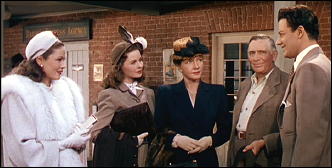
Richard (Cornell Wilde) is a talented artist and writer visiting in New Mexico (and it never looked better) where he meets Ellen (Tierney) who is there to scatter the ashes of her recently dead father. She is the spoiled daughter of her much loved medical researcher father and Mary Phillips, and sister of the adopted Ruth (Jeanne Crain), and brings Richard back to Maine to meet her family.
Richard soon finds himself in Ellen’s determined sights, and it is a delight to be stalked by her, but there are small undercurrents. Ellen’s devotion to her late father is extreme — to the extent her mother adopted Ruth rather than be cut out and alone in the family. Then she breaks up with fiancee Vincent Price in a cold manner so she can have Richard, leaving Price bitter and angry.
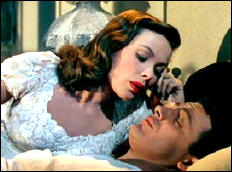
Watching Ellen race her sister across the pool family friend and lawyer Ray Collins observes: “Ellen always wins.” What he doesn’t add is at any price.
But Richard and Ellen marry and seem extremely happy. He brings her back to Warm Springs Georgia with him where he lives with his brother Danny (Darryl Hickman) who has polio. Ellen befriends him and begins to help him recover in the hospital, talking about how he can attend boarding school when he is well, and meanwhile at home she wants no servants around — just she and Richard — maybe a child — in time — a long time.
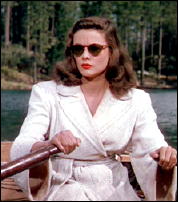
But Ellen’s plans backfire. When she gets Danny well enough to walk he comes with them to Richard’s writing retreat — and even worse the handyman Chill Wills, a friend from Richard’s childhood, makes them a foursome. So something must be done, and since Danny swims every day to strengthen his polio-crippled legs …
The scene where Ellen watches as Danny drowns is one of the finest moments of noir on film, a cold-blooded murder seldom equaled for impact on screen, and done in the brightest of sunshine and the most gorgeous of Technicolor. If ever a film demonstrated noir is a mind set more than a look, it is this one.
But like all Ellen’s plans, this one too backfires. Her family comes to cheer Richard up, with him depressed and lost since Danny’s death — and worst he is withdrawing from Ellen. So Ellen determines to get pregnant to cheer him up — but he loves the coming child too much and grows too close to Ruth. And Ellen can’t face that. She confesses to Ellen she hates the child inside of her.
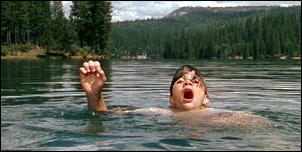
Ellen: “Sometimes the truth is wicked. You’re afraid of the truth aren’t you?”
Ruth: “No, you’re the one who’s afraid.”
Ellen causes herself to lose the child, but by now Richard has begun to see what she is: “He loves me,” she tells Ruth, “but he never liked me.” Eventually he confronts her and she admits she killed Danny and their child — though not quite how fully she was involved. Richard leaves her.
You don’t leave Ellen. She poisons herself and frames her sister for her death, carefully concocting her revenge and framing her sister Ruth. She even asks to be cremated so it will contradict her will that asks to be buried next to her father.
“I’ll never let you go. Never. Never.” she tells Richard with her dying breath.
And the frame takes. The vengeful Price first blames her sister Ruth, as Ellen intended, trying her for murder and putting Richard as much on trial as Ruth.
Price: “You loved her still in June, how about August. Did you still love her in August? … Are you in love with Ruth? Are you in love with Ruth? Are you in love with Ruth?”
Richard sacrifices himself to save Ruth, he confesses that he knew Ellen murdered Danny, and the vengeful Price sees he serves two years for withholding evidence of a crime, but he returns home to Crain’s arms.
Collins: “I guess it’s the only time Ellen didn’t win.”
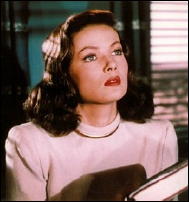
Granted there are some huge holes in logic here. Vincent Price would never have been allowed to prosecute a case he was so close to and Richard could not be charged as an accessory after the fact since he could not testify against Ellen anyway, not to mention Ruth would not have to testify if charged with murder.
But never mind the lapses of logic, this, like much film noir and even many horror films, is a nightmare with its own internal logic. Accept it at that level and it ill hold you with Ellen the most fatale femme of them all.
This film is film noir because of Tierney’s Ellen and only because of Tierney’s Ellen, but in this case that is more than enough.
Ben Ames Williams was a best selling novelist whose work crossed over into numerous genres from historical fiction (All The Brothers Were Valiant) to mystery and suspense. He isn’t read much today, but that isn’t to say he shouldn’t be.
Leave Her to Heaven is a fine example of Hollywood virtues, a product of studio skills and values at their best. Remade for television in 1988 as Too Good To Be True, this may be the darkest foray into bright sunshine you ever experience, a Technicolor nightmare bright and shiny as a polished stone and at its heart as cold and empty.
Gene Tierney was never lovelier on film — and never more monstrous. I don’t know about Dracula and Frankenstein, but Ellen scares me.
